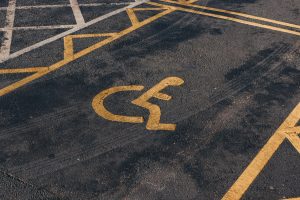1. Nuclear needs commitment from policymakers
The latest World Nuclear Performance Report states that if nuclear is to provide 25 per cent of electricity, policymakers will have to demonstrate further commitment. The report also emphasised that the 50 reactors currently under construction will avoid the emission of a further 450 million tonnes of CO2 each year by 2025. The report states that ‘if we are to be serious about climate change we should also be serious about the solutions. Transitioning to a low-carbon economy that meets the energy needs of the global community presents a daunting task. But it is a challenge that must be met, and one that can only be met by using the full potential of nuclear energy.’
(World Nuclear News, Policymakers must drive nuclear further, report says, 29 August 2019, Link)
2. Cavendish Nuclear to support Japanese decommissioning project
The Japan Atomic Energy Agency (JAEA) has awarded a contract to Cavendish Nuclear to support the decommissioning of a fast reactor at Monju, Japan. Mark Rouse, president of Cavendish Nuclear in Japan commented that ‘this is a great opportunity to showcase the talent and experience developed over many years in the UK and demonstrates how Cavendish Nuclear can support other countries to decommission their sites in a safe manner.’
(Nuclear Industry Association, Cavendish supports decommissioning in Japan, 29 August 2019, Link)
3. World’s first floating nuclear plant leaves port
The Akademik Lomonosov has set sail from Murmansk beginning its journey to Pevek. Once in Pevek, it will guarantee clean and reliable energy supplies to people and businesses across the region. The floating nuclear power unit can last from three to five years without need for refuelling, hopefully, reducing the cost of generation. Rosatom is currently working on the ‘second-generation’ design which will eventually be available for export.
(World Nuclear News, Russia’s floating plant heads for final destination, 23 August 2019, Link)
4. Sellafield’s tallest stack almost fully demolished
After 30 months, there is a nine metre stack where the First Generation Reprocessing Plant used to stand. Due to its proximity to the main Sellafield site, traditional explosive techniques were not used. Instead, workers cut away the concrete and steel stack using hand tools. The project is part of the 100-year Sellafield decommissioning programme being carried out by Sellafield Ltd on behalf of the Nuclear Decommissioning Authority (NDA.)
(Sellafield Ltd, Nuclear Decommissioning Authority, Sellafield’s tallest stack cut down to size, 23 August 2019, Link)
5. Hinkley Point C contributes to Bruton Knowles’ profit boost
International property consultancy, Bruton Knowles, sees profits rise 72 per cent on turnover of £13.85 million. A key contributor to this success is its role in national status projects such as Hinkley Point C and HS2.
(Business Live, HS2 and Hinkley C help Bruton Knowles make £2.3m profit, 30 August 2019, Link)
Brevia Consulting provides straightforward political advice and support to business and organisations.
Discover how Brevia can provide public affairs support to your organisation by calling the Brevia Energy Team on 020 7091 1650 or emailing contact@brevia.co.uk.






